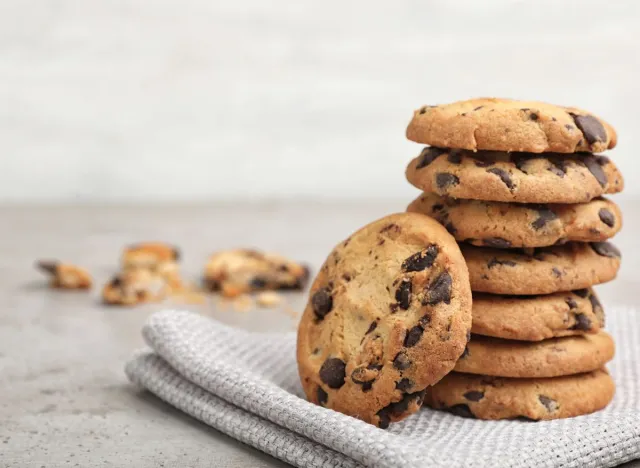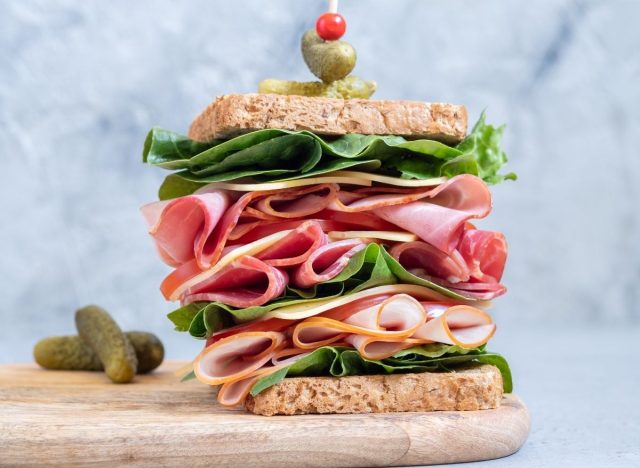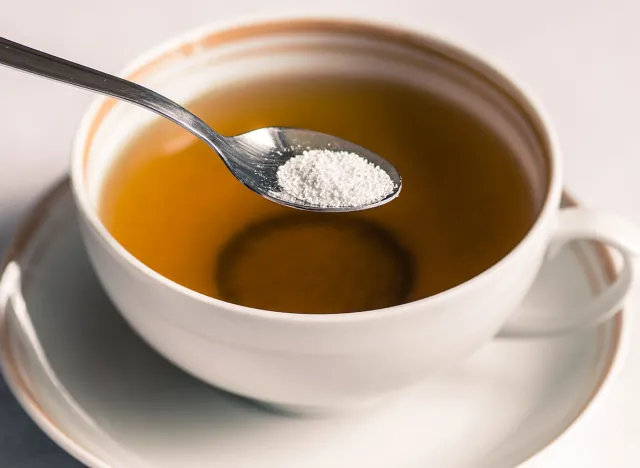Share this @internewscast.com
In the quest for optimal health, we often talk about how diet affects everything from our weight to muscle mass, but what about the role nutrition plays in the health of our most complex organ—the brain? As the command center of the body, the brain is something we can’t afford to ignore when it comes to our well-being, which is why it’s important to know which foods are helping and hurting this vital organ.
Dr. Brett Osborn, MD, a board-certified neurosurgeon, section chief at St. Mary’s Medical Center, and president and founder of Senolytix, a preventative health care and anti-aging facility in West Palm Beach, Florida, offers his insights into the role nutrition plays in brain health, and specifically which foods to avoid to promote it.
Dr. Osborn stresses that it’s unrealistic to expect that he’ll “never” eat these foods, acknowledging that “our brains crave things that taste good!” but, “there are foods—or food groups—that should be avoided whenever possible as they do nasty things to our biochemistry and, by virtue, accelerate cell damage and thereby the aging process.”
While steering clear of these foods is a vital step, it’s important to remember that the key to brain health lies not only in avoidance but also in the healthy foods and habits you’re including in your lifestyle. Embracing a well-rounded diet brimming with omega-3 fatty acids, antioxidants, essential vitamins, lean proteins, greens, and healthy fats is typically considered ideal for brain health. Exercising on a regular basis, staying hydrated, properly managing stress, and getting sufficient sleep are also crucial habits to adopt to preserve optimal brain function. “And remember, what is good for the body is similarly good for the brain,” says Dr. Osborn.
So without further ado, Dr. Osborn encourages you to steer clear of the below foods. Keep reading to learn the foods a neurosurgeon avoids for better brain health. And when you’re finished, be sure to check out the 4 Heart-Healthy Foods a Cardiologist Eats.

Foods and beverages that are packed with sugar are items Dr. Osborn tries to avoid. Foods like cookies, ice cream, pastries, doughnuts, and even certain cereals offer a lot of sugar and not many nutrients.
“Excessive consumption of sugary foods and drinks can lead to blood sugar spikes and crashes, which can impair cognitive function over time,” Dr. Osborn explains. “Does it surprise you to learn that Alzheimer’s disease is also called ‘type III diabetes’? In a similar vein, high-fructose corn syrup may contribute to insulin resistance and cognitive impairment when consumed in excess. So, start reading your food labels.”
Read Related Also: Breaking Down Breast Cancer: The Five Alchemies Of Prevention

Items that are high in trans fats, such as deep-fried foods, processed snacks, and certain margarines are linked to inflammation and can increase your risk of suffering from cognitive decline, Dr. Osborn tells us. “Remember, inflammation is a common underpinning of nearly all age-related diseases. Alzheimer’s is no different,” he notes.

From your favorite bakery items to crunchy, salty snacks to dips and sauces, highly processed foods should be looked at with caution. “Many highly processed foods are loaded with artificial additives, preservatives, and unhealthy fats, which can contribute to cognitive impairment when consumed regularly,” Dr. Osborn warns. “Remember this: If a food can be left out—exposed to air—and not spoil, you probably shouldn’t be eating it.”

You probably saw this one coming. Although your go-to martini or a favorite blend of wine may be something you look forward to after a long work week, it deserves a spot on this list of items to avoid. It’s critical to not overdo it when it comes to drinking alcohol.
“Heavy alcohol consumption can lead to alcohol-related brain damage and impair cognitive function over time,” Dr. Osborn tells us. “But it doesn’t stop there. Excessive consumption can lead to chronically impaired coordination, seizures, and a host of other derangements that can land you in the ICU. You can die from complications related to alcohol withdrawal. I’ve seen this in my trauma patients.”

High-sodium foods such as breads and rolls, cold cuts, beef jerky, condiments, soy sauce, pickles, pretzels, instant pudding, canned soups, and more can wreak havoc behind the scenes once ingested. In fact, according to Dr. Osborn, “Diets high in sodium (salt) may contribute to high blood pressure, that can negatively affect the heart and, in a similar capacity, the brain. High blood pressure causes micro tears in the walls of blood vessels. The result? Atherosclerotic narrowing, predisposing one to mini-strokes or a catastrophic, life-changing one.”

If you tend to use artificial sweeteners in your daily cup(s) of joe, it’s time to reevaluate that habit. “Some studies suggest that artificial sweeteners may have adverse effects on cognitive function and metabolism, though more research is needed,” Dr. Osborn says. “Again, do your best to read food labels carefully, and minimize your consumption of aspartame, sucralose, and saccharin, to name a few. There are better alternatives, in particular stevia or monk fruit.”

Speaking of your cup of joe, having too much of anything is never a good thing—especially with caffeine. “While moderate caffeine consumption can have cognitive benefits, excessive caffeine intake can lead to anxiety, sleep disturbances, and potentially impair brain function,” Dr. Osborn reveals. “As with anything, moderation is key. If possible, limit caffeine to the morning hours. Hard stop at lunch.”










